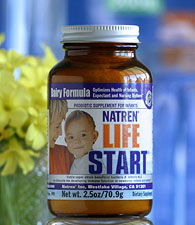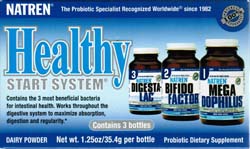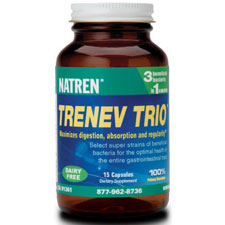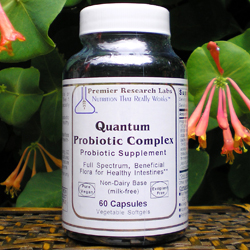The article published in last Wednesday's newsletter left many of you looking for more information on probiotics. We received lots of positive feedback and questions and felt it would be helpful to provide a more in-depth look at probiotics. “Probiotic” has become a common word in any American “health enthusiast’s” lingo, especially when talking about digestive health. If you walk into any pharmacy or health food store these days, you will likely see a rainbow array of vibrant, diversely-sized boxes and bottles of probiotic supplements lining tightly stocked shelves. Mass-produced, sugar-full yogurt containers are even boasting about their probiotic-containing qualities with bright splashes of text on the labels. Primary care physicians are also regularly prescribing these supplements as an adjunct to medication to heal an array of digestive symptoms. Yet, in the midst of all this spectacular “newfangled” hype, the truth is that many probiotic supplements on the market today are completely ineffective in restoring any sort of digestive equilibrium, and may even be doing more harm than good.
What are Probiotics?
Probiotics are the natural, beneficial bacteria that comprise the indigenous flora of the digestive tract. As a group, these various strains of "good" bacteria work to prevent invasion by pathogens, stimulate the immune system, sustain integrity of the gut and provide a means of nourishment by synthesizing absorption of various amino acids, vitamins and minerals that are the building blocks of our bodies. The literal interpretation of the word probiotic is “for-life,” which serves as a beautiful translation in a world that is all too commonly about sterilizing, containing and squandering flora indiscriminately through antibiotics, heating, refining and processing foods, adding artificial “enhancements” to water and toxic chemical exposure. As a collective population, we have significantly altered the environment, water and food supplies to eliminate Nature’s gift of valuable, beneficial bacteria, which were previously obtained and enjoyed by the mouthful. While probiotics are also found in homemade fermented foods such as yogurt, kefir and sauerkraut, mass production of these foods has negated many of the benefits of those found in the market, and few people are willing to take the time to go through the fermentation process at home in our hurried society (though it can be tasty and a lot of fun). Due to the overarching deprivation, many individuals’ guts have been invaded by pathogens in place of vital flora, creating a hostile internal environment and destroying holistic wellness.
What are Probiotics Useful For?
While almost everyone living in modern society could benefit from replenishing indigenous gut flora, conditions that have been shown in extensive clinical trial to respond well to probiotic revitalization through supplementation include, but are not limited to:
-Viral Infections of the Digestive and Urinary Systems
-Irritable Bowel Syndrome
-Lactose Intolerance
-Crohn’s Disease, Ulcerative Colitis
-Allergies
-Autism
-Hepatitis
-Tuberculosis
-Meningitis
-Malignancy
-Diabetes
-Skin Conditions (including acne, eczema and even burns)
-Immune Disorders
-Mental Health Disorders/Emotional Dysregulation
What Makes a Good Probiotic?
Among the baffling amount of probiotic complexes on the market one will find bizarre concoctions of powders, tablets, liquids, capsules, beverages and foods. All of these choices are all quite baffling when coupled with the intensive marketing campaigns of various monetarily driven manufacturers trying to sell you the “best product out there!” While it is always helpful to work with an experienced holistic health practitioner when making any major changes to supplementation schedule or diet, there are some basic tips to consider when navigating the probiotic industry:
Make sure the supplement is soy, GMO, preservative and gluten free. These are all gastric irritants, which will further inflame, rather than aid in the process of healing the ravaged gut. Sometimes these elements are conveniently left off the label, so be sure to do your research about manufacturers. Rigorously testing all products to hold this standard, is one of Radiant Life’s valued core principles.
A mixture of bacterial strains is most helpful. There are commonly six recognized groups of probiotics that work synergistically in the GI tract. While many products you encounter will only contain Lactobacilli acidophilus, this will be purely insufficient in reestablishing an optimal digestive balance alone. An effective supplement will contain at least Lactobacilli bulgaricus and a species of bifodobacterium as well.
A concentrated amount of bacteria should be available. Viable bacteria in a probiotic dose is generally measured by colony forming units or CFUs. While different therapeutic doses are required for individuals of varying ages and state of health, an adult generally requires about 15-20 billion bacterial cells (cfu) per day at maintenance. Thus the concentration of the tablet/capsule should be at least 8 billion, so that an excessive amount of doses is not necessary (nobody wants to be swallowing 8 tablets a day). Specific formulas appropriate for infants, tablets and children are also available- the symbiotic relationship with gut flora is established nearly immediately, and needs to be supported at any age!
Check out the scrupulously researched and carefully selected Natren Probiotics and Premier Research Lab products offered at Radiant Life:




